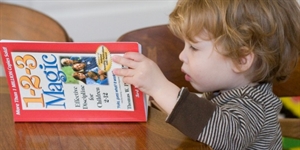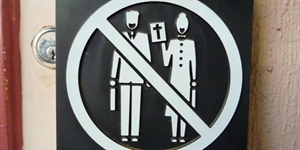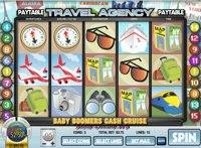April Fools or All Fools Day 2024 is on Monday, April 1, 2024: why when where was April Fools day started?
Monday, April 1, 2024 is April Fools or All Fools Day 2024. April Fools' Day celebrating and Fooling April Fools' Day is celebrated
As an Amazon Associate I earn from qualifying purchases.
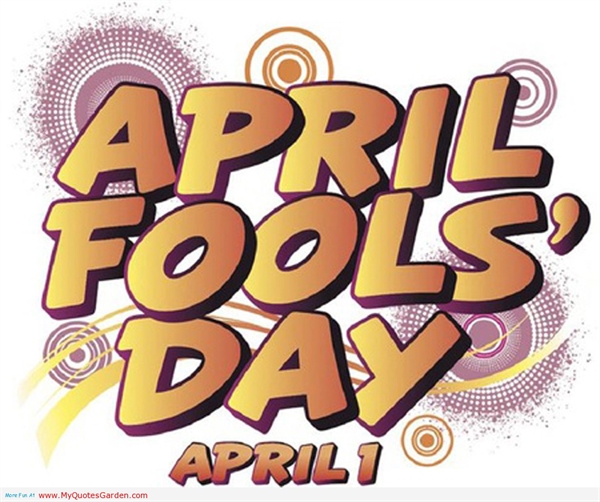
The history of April Fool's Day or All Fool's Day is uncertain, but the current thinking is that it began around 1582 in France with the reform of the calendar under Charles IX. The Gregorian Calendar was introduced, and New Year's Day was moved from March 25 - April 1 (new year's week) to January 1. Send invitations to nonexistent parties and have other practical jokes played upon them. Communication traveled slowly in those days and some people were only informed of the change several years later. Still others, who were more rebellious refused to acknowledge the change and continued to celebrate on the last day of the former celebration, April 1.
These people were labeled "fools" by the general populace, were subject to ridicule and sent on "fool errands," sent invitations to nonexistent parties and had other practical jokes played upon them. The butts of these pranks became known as a "poisson d'avril" or "April fish" because a young naive fish is easily caught. In addition, one common practice was to hook a paper fish on the back of someone as a joke.
This harassment evolved over time and a custom of prank-playing continue on the first day of April. This tradition eventually spread elsewhere like to Britain and Scotland in the 18th century and was introduced to the American colonies by the English and the French. Because of this spread to other countries, April Fool's Day has taken on an international flavor with each country celebrating the holiday in its own way.
In Scotland, for instance, April Fool's Day is devoted to spoofs involving the buttocks and as such is called Taily Day. The butts of these jokes are known as April 'Gowk', another name for cuckoo bird. The origins of the "Kick Me" sign can be traced back to the Scottish observance.
In England, jokes are played only in the morning. Fools are called 'gobs' or 'gobby' and the victim of a joke is called a 'noodle.' It was considered back luck to play a practical joke on someone after noon.
In Rome, the holiday is known as Festival of Hilaria, celebrating the resurrection of the god Attis, is on March 25 and is also referred to as "Roman Laughing Day."
In Portugal, April Fool's Day falls on the Sunday and Monday before lent. In this celebration, many people throw flour at their friends.
The Huli Festival is celebrated on March 31 in India. People play jokes on one another and smear colors on one another celebrating the arrival of Spring.
So, no matter where you happen to be in the world on April 1, don't be surprised if April fools fall playfully upon you.
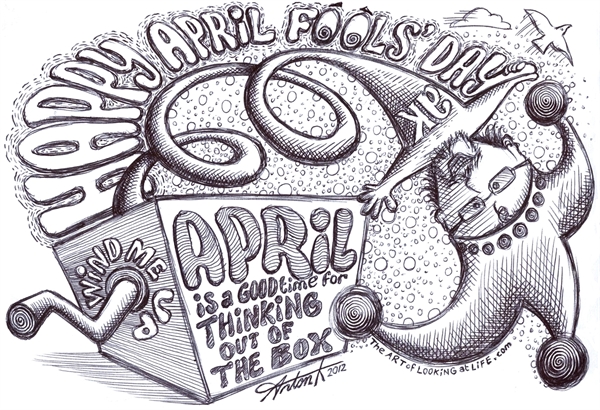
what's the origin of 1st April fools day?
The Origin of April Fool's Day
The origin of April Fool's Day remains clouded in obscurity. Basically no one knows exactly where, when, or why the celebration began. What we do know is that references to 'All Fool's Day' (what April Fool's Day was first called) began to appear in Europe during the late Middle Ages. All Fool's Day was a folk celebration and elite participation in it was minimal (which is why it's so difficult to trace the exact origin of the day, because the people celebrating it back then weren't the kind of people who kept records of what they did). But what is clear is that the tradition of a day devoted to foolery has ancient roots. As we look back in time we find many ancient predecessors of April Fool's Day.
Ancient Roots
Throughout antiquity numerous festivals included celebrations of foolery and trickery. The Saturnalia, a Roman winter festival observed at the end of December, was the most important of these. It involved dancing, drinking, and general merrymaking. People exchanged gifts, slaves were allowed to pretend that they ruled their masters, and a mock king, the Saturnalicius princeps (or Lord of Misrule), reigned for the day. By the fourth century AD the Saturnalia had transformed into a January 1 New Year's Day celebration, and many of its traditions were incorporated into the observance of Christmas.
In late March the Romans honored the resurrection of Attis, son of the Great Mother Cybele, with the Hilaria celebration. This involved rejoicing and the donning of disguises.
Further afield in India there was Holi, known as the festival of color, during which street celebrants threw tinted powders at each other, until everyone was covered in garish colors from head to toe. This holiday was held on the full-moon day of the Hindu month of Phalguna (usually the end of February or the beginning of March).
Northern Europeans observed an ancient festival to honor Lud, a Celtic god of humor. And there were also popular Northern European customs that made sport of the hierarchy of the Druids.
All of these celebrations could have served as precedents for April Fool's Day.
Medieval Roots
During the middle ages, a number of celebrations developed which served as direct predecessors to April Fool's Day. The most important of these was the Festus Fatuorum (the Feast of Fools) which evolved out of the Saturnalia. On this day (mostly observed in France) celebrants elected a mock pope and parodied church rituals. The church, of course, did its best to discourage this holiday, but it lingered on until the sixteenth century. Following the suppression of the Feast of Fools, merrymakers focused their attention on Mardi Gras and Carnival.
A medieval fool dispenses treats to a crowdThere was also the medieval figure of the Fool, the symbolic patron saint of the day. Fools became prominent in late medieval Europe, practicing their craft in a variety of settings such as town squares and royal courts. Their distinctive dress remains well known today: multicolored robe, horned hat, and sceptre and bauble.
Mythological Roots
There have been quite a few attempts to provide mythological explanations for the rise of April Fool's Day.
For instance, it was once popular to attempt to christianize the celebration by locating its origin somewhere in Biblical traditions. In one such version, the day's origin is attributed to Noah's mistake of sending a dove out from the ark before the flood waters had subsided (thereby sending the dove on a fool's errand). A second story tells that the day commemorates the time when Jesus was sent from Pilate to Herod and back again. The phrase "Sending a man from Pilate to Herod" (an old term for sending someone on a fool's errand) was often pointed to as proof of this origin theory.
But there are rival mythological explanations linking the celebration to pagan roots. For instance, April Fool's Day was often traced back to Roman mythology, particularly the myth of Ceres and Proserpina. In Roman mythology Pluto, the God of the Dead, abducted Proserpina and brought her to live with him in the underworld. Proserpina called out to her mother Ceres (the Goddess of grain and the harvest) for help, but Ceres, who could only hear the echo of her daughter's voice, searched in vain for Proserpina. The fruitless search of Ceres for her daughter (commemmorated during the Roman festival of Cerealia) was believed by some to have been the mythological antecedent of the fool's errands popular on April 1st.
British folklore links April Fool's Day to the town of Gotham, the legendary town of fools located in Nottinghamshire. According to the legend, it was traditional in the 13th century for any road that the King placed his foot upon to become public property. So when the citizens of Gotham heard that King John planned to travel through their town, they refused him entry, not wishing to lose their main road. When the King heard this, he sent soldiers to the town. But when the soldiers arrived in Gotham, they found the town full of lunatics engaged in foolish activities such as drowning fish or attempting to cage birds in roofless fences. Their foolery was all an act, but the King fell for the ruse and declared the town too foolish to warrant punishment. And ever since then, April Fool's Day has supposedly commemmorated their trickery.
The Calendar-Change Theory
The most widespread theory about the origin of April Fool's Day involves the Gregorian calendar reform of the late sixteenth century.
The theory goes like this: In 1582 France became the first country to switch from the Julian to the Gregorian calendar established by the Council of Trent (1563). This switch meant, among other things, that the beginning of the year was moved from the end of March to January 1. Those who failed to keep up with the change, who stubbornly clung to the old calendar system and continued to celebrate the New Year during the week that fell between March 25th (known in England as Lady Day) and April 1st, had various jokes played on them. For instance, pranksters would surreptitiously stick paper fish to their backs. The victims of this prank were given the epithet Poisson d'Avril, or April Fish. Thus, April Fool's Day was born.
The calendar change hypothesis might provide a reason for why April 1st specifically became the date of the modern holiday. But it is clear that the idea of a springtime festival honoring misrule and mayhem had far more ancient roots. In addition, the process by which the observance of the day spread from France to protestant countries such as Germany, Scotland, and England is left unexplained by this theory. These nations only adopted the calendar change during the eighteenth century, at a time when the tradition of April Foolery had already been well established throughout Europe. Finally, it is not clear what evidence, besides conjecture, supports the theory. For which reason, while there's certainly a possibility that the calendar-change hypothesis contains a germ of truth, it should not be regarded as fact.
Rev. Dr. Donald Betz D.D.

Has anyone ever made a fool of you on April Fools' Day?
Yes I was made April Fool by my Children
I was to pick up my daughter Anna Maria very early in the Morning on April 1.2010 at the
Toronto International Airport.
That was True .
Due to a film shooting problem ( she was in a movie) she changed the date re arrival
and was to come on Apritl 2/2010
I didn't get any messages from her. and I woke up at 6 AM and was pulling out of my
driveway to drive to the airport and pick her up
My darling son .didn't tell me re Message sent to him . My Yahoo was not working
Maybe he reset it ..Thus I couldn't get message from Anna Maria
He then told me Mom.. Don't pick up Anna Maria .. She is coming on April 2/2010
She did come April 2.2010
And Then Stated April Fools.
Some April Fools Joke.
I Was Not Amused.















